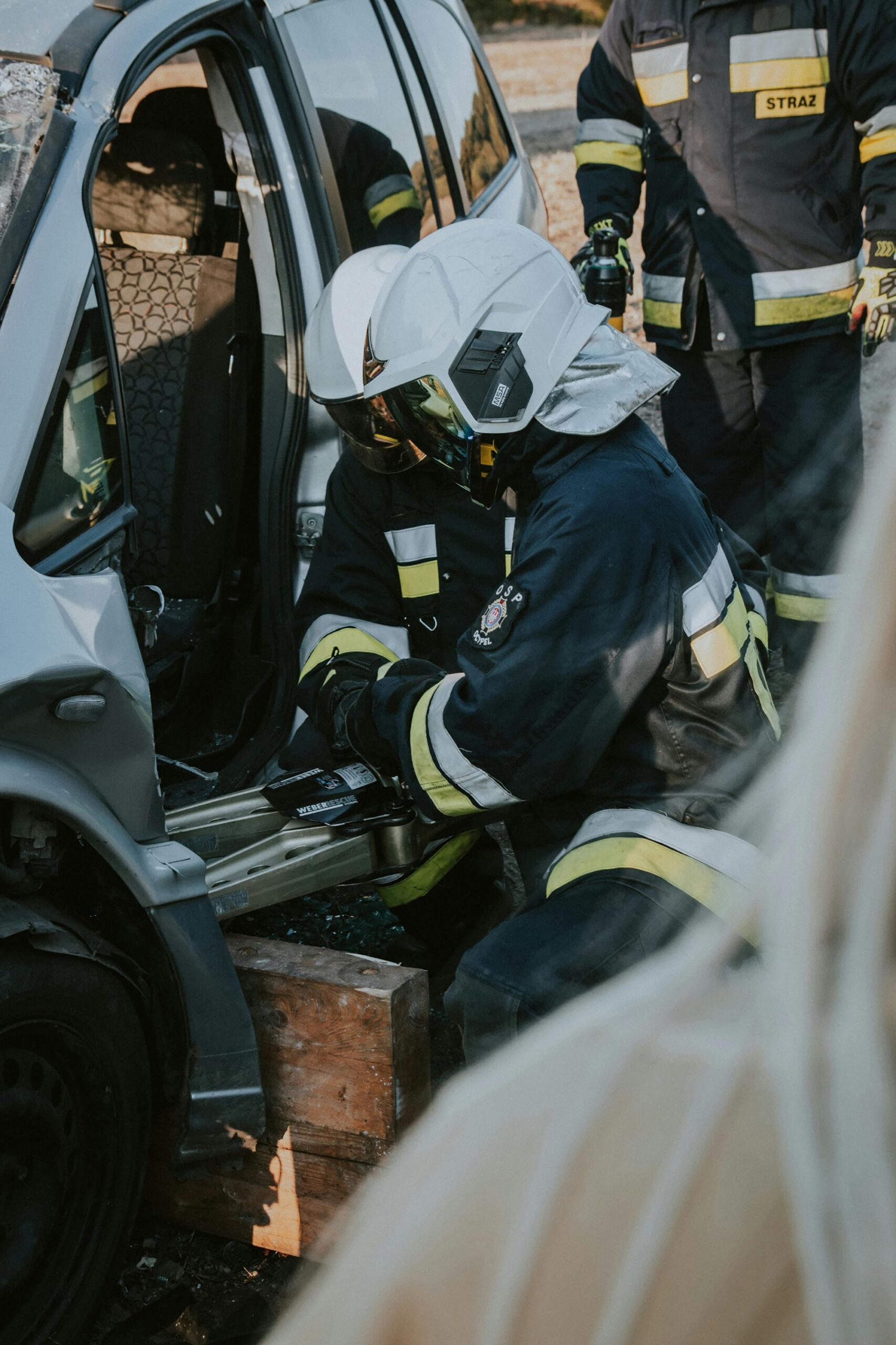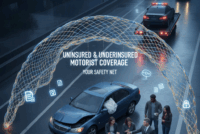You’re driving through the busy streets of Las Vegas, just looking to get to paintings, pick up groceries, or head home after a long day. The closing thing on your thoughts is a minor crash.
But then—bam! A bump from behind or a scrape on the side. That small jolt can throw off your whole day. It’s what we all know as a fender bender. Not life-threatening, but definitely annoying, time-consuming, and often costly.
At Michaelhua, we see this kind of thing way too often. People come in stressed, frustrated, and wondering how something so small can cause so much trouble. And the truth is, most fender benders are completely avoidable. They don’t happen because of bad luck—they happen because of everyday mistakes we all make.
So let’s dig into it. What really causes fender bender crashes? Why do they happen more than they should? And how can you avoid being the next person on the side of the road with a dented bumper and a bad mood?
We’re going to break it down in a way that’s simple, real, and actually helpful. No confusing terms. No finger-pointing. Just honest talk about the common reasons these crashes happen, and how to keep yourself out of the mess.
The Problem with Everyday Driving
Most people don’t realize that fender benders happen in the most ordinary places. Parking lots. Stop signs. Traffic jams. Red lights. These crashes aren’t always about speeding or reckless riding. They’re approximately the little things—the short choices, the small distractions, the tiny moments wherein your focus slips. In Las Vegas, traffic can be a mess. Tourists, stop-and-go congestion, hot weather that tests your patience—it all adds up. And in that mix, a simple tap on the brakes or a glance at your phone can be all it takes to cause a fender bender.
So what’s really behind these minor crashes? It’s time to take a closer look.
- Distracted Driving: The Silent Culprit
This one’s big. Huge, actually. It’s the top reason people get into fender benders—and most of us are guilty of it at some point.
You’re sitting in traffic, and your phone buzzes. Maybe it’s a text. Maybe you’re changing the music. Or maybe you’re just zoning out, thinking about your day. The light turns green, traffic moves, and you’re half a second too slow or too fast. That’s all it takes.
A car stops suddenly in front of you, and you’re not ready. You slam the brakes, but it’s too late. Crunch. Fender bender.
Distractions come in all forms. Phones are the biggest one, but it could also be eating, fixing your hair in the mirror, talking to passengers, or even just daydreaming. The road demands attention, and when your mind is elsewhere, accidents sneak in fast.
- Tailgating: Too Close for Comfort
People in a rush often ride the bumper of the car ahead. Maybe they think it’ll get them there faster. But when you don’t leave enough space, you leave no room to react. If the car in front of you brakes—even just a little—you’re already in trouble.
This is especially bad in Las Vegas traffic where drivers can be unpredictable. One sudden stop, and boom—you’re in their backseat. Tailgating might feel like a way to push traffic along, but really, it just raises your risk.
Giving a little more space might seem like a small thing, but it’s one of the biggest ways to avoid a crash.
- Sudden Stops and Panic Braking
Sometimes, drivers slam the brakes hard and fast. Maybe a light turns yellow, or they see something in the road. But if the car behind them isn’t ready for it, there’s not enough time to stop. That’s when rear-end crashes happen.
It’s not always the back driver’s fault. If someone brakes suddenly with no reason or doesn’t signal, it’s tough to react. These moments are common in places like intersections, especially when people are unsure whether to go or stop.
Driving smooth and steady helps keep everyone safer. Abrupt moves just set off a chain reaction, especially in heavy traffic.
- Backing Out Blindly
Parking lots are hotspots for fender benders, particularly when humans again out of spaces with out checking all angles. You may think the coast is obvious, but every other car or pedestrian can pop up out of nowhere.
This is even greater of a hassle in tight parking plenty or all through busy instances like weekends or vacations. It’s tempting to simply lower back out quickly and get shifting, but that rush can cause hassle.
Taking the more few seconds to look around—honestly appearance—can prevent from that awful crunch of metallic on steel.
- Poor Weather Conditions
Even in Las Vegas, wherein sunshine is the norm, we do get those sudden rainstorms or dusty winds. When that happens, roads get slick and visibility drops. People don’t constantly adjust their using for the climate, and that’s a huge mistake.
Wet roads suggest longer stopping times. Wind could make it tougher to manipulate your automobile. If you’re riding the identical manner you will on a dry, sunny day, you’re taking a danger.
Fender benders in bad climate often show up due to the fact drivers don’t gradual down or deliver extra area. Mother Nature can’t be managed, but how we drive in it truly can.
- Misjudging Gaps and Timing
You’re trying to merge, trade lanes, or make a flip. You assume you’ve got sufficient time, however you don’t. That misjudgment leads to a fender bender, regularly with each drivers shaking their heads and blaming every different.
This sort of crash happens lots in fast-paced site visitors, in which every 2nd counts. But guessing wrong on timing can mean clipping another car or cutting someone off.
Patience goes a long way here. Taking an extra moment to be sure it’s safe makes all the difference.
- Rolling Stops and Ignoring Signs
Ever rolled through a stop sign thinking no one was coming? Or treated a yield sign like a suggestion instead of a rule?
It happens. We’re all human. But these small lapses in judgment often lead to low-speed crashes.Another vehicle might be crossing legally, or a pedestrian will be strolling with the aid of. When we don’t comply with the regulations, we growth the chances of something going wrong.
Fender benders at intersections and driveways are super common for this reason. A full stop takes maybe three seconds. That’s way less time than it takes to file an insurance claim or fix a busted bumper.
- Driver Fatigue and Zoning Out
You don’t need to be asleep at the wheel to be too tired to force. Fatigue messes along with your focus, your reaction time, and your judgment. Even if your eyes are open, your brain might not be all the way in the sport.
In a town like Las Vegas that in no way without a doubt sleeps, it’s not unusual for people to force tired—after paintings, after a night out, or after a long shift.
When you’re tired, you’re slower to be aware brake lights, adjustments in site visitors, or curves in the road. That’s when those small, “I didn’t even see it coming” crashes appear.
- Rushing and Running Late
Being in a hurry is a common thread in most fender benders. You’re late. You’re stressed. You’re trying to beat traffic, beat the light, or beat the clock.
But rushing almost always leads to careless moves. You follow too closely. You take turns too fast. You don’t double-check your mirrors. That rush might save you a few minutes—if you’re lucky. But if it lands you in a crash, you’re going to lose way more time dealing with repairs and paperwork.
Slowing down isn’t just about speed. It’s about taking the time to drive with purpose and focus.
- Lack of Communication on the Road
Driving isn’t just about controlling your vehicle—it’s approximately letting other drivers realize what you’re doing. And whilst you don’t use turn indicators, or you change lanes with out warning, it throws human beings off.
Good communication helps everyone move together safely. It prevents confusion and stops crashes before they happen.
You wouldn’t walk across a crowded room without letting people know which way you’re going. Driving should be the same way.
So What’s the Fix?
Here’s the good news: fender benders can almost always be avoided. They’re not random acts of bad luck. They’re the result of small mistakes that we can control.
Start by being present when you drive. Not just physically, but mentally. Pay attention. Slow down. Give space. Signal early. Double-check your surroundings. Don’t drive tired or rushed. And for the love of your bumper—put the phone down.
At Michaelhua, we’ve helped so many humans fix their automobiles after a fender bender. But the fact is, we’d alternatively help you keep away from desiring us within the first location. Because avoiding a crash isn’t just about saving cash—it’s about staying safe, protective it slow, and preserving your day moving in the proper direction.
If you’ve been in a fender bender lately, or in case you just want to ensure your car’s nonetheless in top shape, come see us. We’re right right here in Las Vegas, prepared to help with actual advice, honest provider, and no pressure.
Drive clever. Drive safe. And remember, the small matters matter—on the street and in existence.
Need assist? Questions? Reach out to Michaelhua anytime. We’re here while you need us.





